John Hillyard
UC Santa Barbara (Data Science)
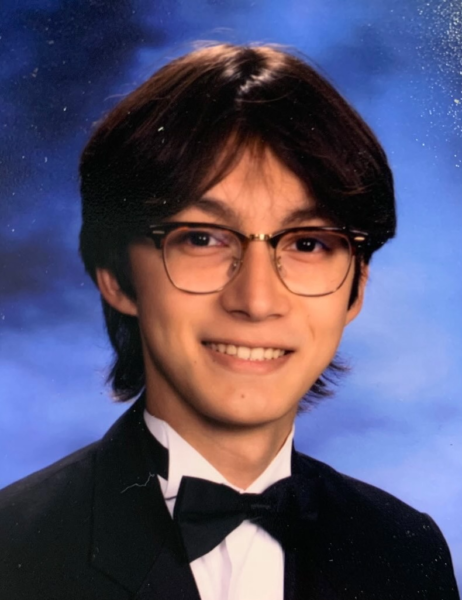
Why did you decide to go to UC Santa Barbara?
Both my parents didn’t go to college. I was always encouraged, [but] not really pushed, to go to college. There is a lot of pressure [to attend college], especially at Aragon since it is a very academically focused school. [UC Santa Barbara was] more financially viable than other out-of-state colleges or private institutions. It was the highest ranked UC I got into, and I found that the social life there is fun [and] it’s in a good location. It’s far enough that I can experience a new place. My other option was Michigan, and it was just too expensive, too cold and too much of a transition, so UC Santa Barbara was the most comfortable and easiest logistically to go to.
What led to your decision of majoring in data science?
I wanted to do computer science, but I thought that getting into a college to do computer science [was too] competitive. [At Aragon] I look at a lot of data from the clubs I lead, and I [gain] a lot of insight into [problems] through the data. I’m interested in seeing all the bulk of numbers and trying to translate that into something that is related to humans and how we talk to each other … and it also pays a lot.
What are your plans after graduating college?
I’m looking forward to finding more of what I’m passionate about, maturing and becoming a whole person. From middle school to now, you build a high school identity and who you are and what you do, so now I feel like it’s all scratched and it’s like a clean slate. So I’m excited to start over.
Bonnie Huang
Sacramento City College (Genetics)
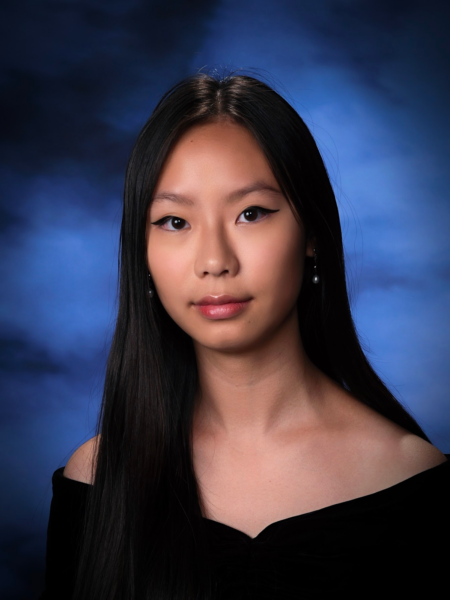
What is your path after high school and why did you choose that path?
[I plan to] go to college through the [Transfer Admittance Guarantee (TAG)] system. You can meet your [general education] courses in community college, then get a guaranteed transfer to a majority of the UC [schools]. I wasn’t exactly confident in my grades and I wasn’t confident in my essay writing abilities. I’ve heard from older friends that … there’s a specific way you need to market yourself [in college applications], and after struggling through junior year, I wasn’t super confident in my abilities to do that. The TAG system is [also] cheaper because you won’t be paying for as many years of college.
What made you choose genetics?
I did A.P. Biology and I knew I wanted to do something within the STEM field, but the genetics unit … was the one thing that really clicked for me … [For] the heredity problems with punnett squares, it was cool to be able to figure out how traits get passed down and where it comes from. The biggest thing that interested me was mostly what we can do with it.
What job are you planning to pursue after you graduate college?
I’m hoping to also do something related to computer science because … with the amount of data or DNA someone has, you need to run it through something in order to properly analyze it. I was hoping to work in a lab to figure out certain medications, or write out a program to relate it to it. I haven’t been in a real lab, and the biggest lab I’ve ever done was drowning potatoes in iodine. But I’m saving that question for when I get more lab experience to see if I really want to be at a lab all day, or if I would rather punch phrases into a coding program.
How did you and others feel about your decision to pursue the TAG system?
To my parents, I had to market it as I’m going to do some transferring system that saves you money rather than being like ‘yeah, I’m going to CSM next year.’ Also, watching my friends get into all these really good colleges [is] a bit hard for me because I know I’m not going to be on the same prestigious path as them now, but it’s better for me in the end.
Do you have any words of advice for the coming generation of graduates?
Just explore. Over quarantine, I made the mistake of being lazy and choosing what seemed like the easiest path, and I regret that because I could have done so much more with my time. I’m only now figuring out that I have interest in coding and in sophomore year, I could have chosen to do that but instead I did nothing. Most will find that their interests change over time, and with college it might be hard to pick what you want to do. So try everything [to] figure out what works.
Kentaro Regan
Gap Year
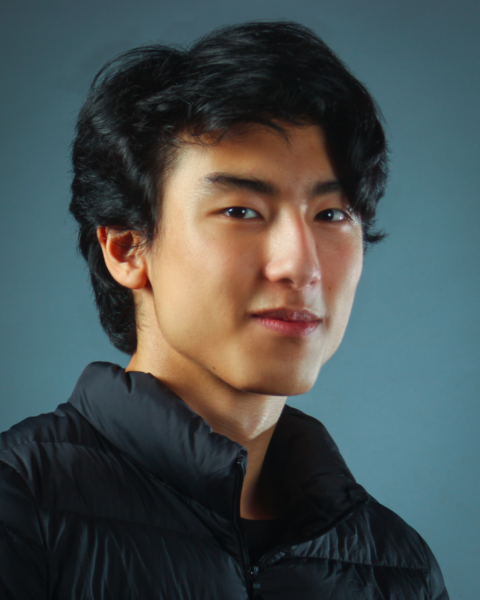
What led to the decision to take a gap year?
Initially, it was because I didn’t really know where my career path was. In junior year I was thinking, ‘I don’t really know what to do,’ But in my senior year, my gap year has turned more into a trial period for my writing. I want to see if my writing will go anywhere and if I can make a career out of my writing.
What kind of writing do you enjoy reading/writing and how did you get into it?
I’m into anime or manga, [and] I watch and read a lot of it. Manga has this unique tone where it’s comedic and light hearted, but at the same time, it uses that to hide serious themes or topics … I like going into non-realistic writing where there’s magic, there’s getting reincarnated into another world or something like that. I’m open to writing different types of [genres]. I’ll look at a fictional work, and be like, ‘Hey, I kind of want to try that out and maybe I’ll be inspired by that and write.’
Have you started/finished any writing projects?
I haven’t really done anything. I haven’t gone to writing competitions or anything outside of school. The biggest thing was the art show that Jabberwocky did. I presented a poem there, and that was probably the biggest thing I did. I have been working on a couple of novels, they’re not really the size of novels, but they approached 10,000 words, and then I just stopped there and moved on to something else. I’m actually working on … a playwright for a creative writing class [right now].
Do you feel any apprehension towards your decision?
I feel a lot of fear [about] the gap year because I’m banking on my writing pulling me through. If the writing doesn’t work, then I don’t really know where I’m going to go after that. But I don’t really have any regret on choosing a gap year or choosing to prioritize my writing. I feel like if anything, it would be more of a regret to not try my dream out before conceding onto a more traditional career path.
How did the people around you react towards your decision?
The biggest reaction came from my family. It wasn’t as dramatic as a lot of other families would have. They were mostly supportive, but I do get the sense that they’re not really that confident in my writing path. And my friends, I feel like they’re impressed … [because] it’s a lot scarier to risk a traditional path on something more abstract.
What are you looking forward to most about the gap year?
Writing. When you’re in school, you don’t have the freedom to choose your schedule. You can take a job, but mostly you’re swamped with homework and you do have eight hours of school every day for five out of those seven days. If you take a gap year, you have more time to develop a healthy work ethic because I know a lot of people really struggle … to balance school with the things they want to do, and I hope that gap year will help with that.
Joanna Carla Barrameda
College of San Mateo (Criminology)
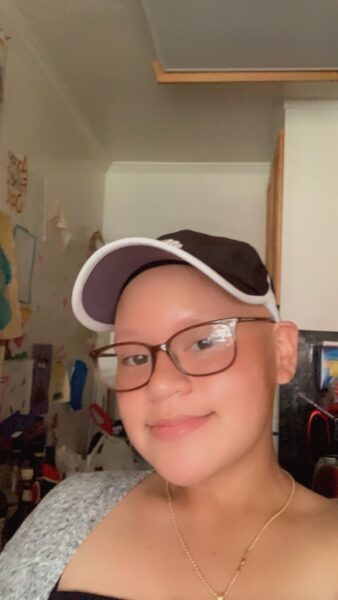
What led you to pursue criminology?
Being our AVID (Advancement via Individual Determination) community, it’s a way of helping other people and trying to solve problems. Especially in our tutorials when we have problems and we try to help each other identify the problem and get the solution. So in that community, that’s what really allowed me to get that interest of wanting to do more and wanting to help people and go out of my way to better things and help find solutions.
What are your thoughts about leaving high school?
During my senior year, I was just like, “Oh, I’m ready to get out of senior year.” This is my last year, and now that I’m going up to the final three weeks of school, it’s definitely nerve wracking and overwhelming. With everything I did for my classes and registration, I feel almost complete but not there yet. There’s still a little bit of me that’s worried that I might not be guaranteed admission, but that’s something I’m not too worried about. I’m excited for a new change and being able to really take control of my own life and make my own decisions.
Do you have anything to say to the next generations?
All the hard work and all the stress is worth it in the end when you finally go through these last weeks of school . Doing these applications and seeing your acceptance is really a big accomplishment. Knowing that all my hard work is paying off and seeing my academic achievements coming through is definitely a lot. It’s also important to balance work and your social life at the same time because yes, school is very important. But social life is also just as important.
Leia Young
University of St. Andrews (Neuroscience)
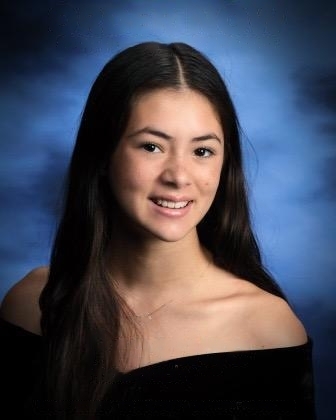
Why University of St. Andrews?
[I heard about University of St. Andrews from] my mom’s best friend from high school and college – her son is a freshman there right now. I was always interested in Europe and I looked at Oxford and Cambridge, because those are the ones everyone knows, but the problem with them is they aren’t really easy for Americans to go to because the system doesn’t really line up and they’re very restricted. But Scotland has a different system, so I was able to [get in]. I visited [the university] in September [when I was] visiting my mom’s friend’s son, and I really loved it. It’s a beautiful campus. It literally looks like Hogwarts and it was crazy. Actually … Edinburgh is where JK Rowling wrote Harry Potter, and that’s an hour away from where my school is.
What was the admissions process like?
[The university has] rolling admissions, which is pretty unique to St. Andrews. It’s not really a European thing, but basically [applications] opened in September and … then you get your decision back, either within a few weeks or it could be months. I know people who just got the decision back, [but] I happened to get [mine] back within a few weeks, which was nice … It was actually on the Common App, … so it was just like any other college: I wrote a little supplement and applied and then I got in, so it’s not too bad.
What are you looking forward to the most?
It really is the culture that I’m excited for. The people in university are really considered adults instead of children. There’s no one watching over you. There’s not really as much advising and there’s no RAs in the dorms, so it’s being treated more like an adult that I like … Also, in order to go across the world and go to one of these schools so far away, you have to be a pretty interesting person. I’m going to be surrounded by a lot of Americans who have made that same choice or a lot of Europeans who have clearly been really smart to get into that type of school or who traveled to get to it. It’s very, very diverse [with people] from all over the world.
What’s the biggest obstacle you’ll face in Scotland?
This might sound silly, but the weather. Seasonal depression runs in my family and there’s no way to know if it’s going to hit me or not until I get there. If I get there and it’s cold all year round, which it is, and I get depressed, there’s nothing I can do about it and it just kind of sucks …The other thing is [the curriculum at St. Andrews] is not going to line up exactly with European or American education. Going to med school [in America] afterward is not going to line up correctly. I’m not going to have my prerequisites done and I’m not going to have any advising for that. Also, nothing from high school [such as] APs or anything transfers, so there’s a little bit of apprehension about that.
Madeline Dang
University of Michigan (Art and Design)
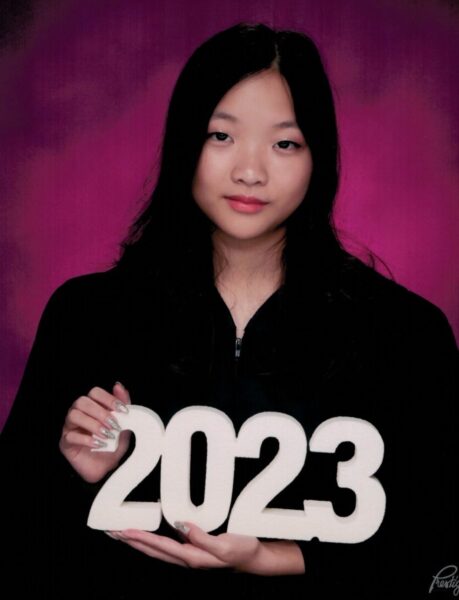
How did you get into visual arts?
It was just a hobby all throughout my childhood until now, and I ended up taking ceramics one in freshman year accidentally, because of some problem with my schedule. But then I ended up really enjoying it and continued it throughout sophomore year and then I did AP in junior year. Now I’m the TA for ceramics this year, so I’ve just kind of been into ceramics all throughout my high school career. That pushed me into pursuing more of an art career in the future.
What do you enjoy about design?
I like to make collages and computer backgrounds, designing [computer backgrounds] and matching my aesthetics. I mostly chose the design aspect because I thought it was more multifaceted than art and precise. In terms of breaking out into the workforce, design is a little easier to go about.
What led you to choose University of Michigan?
I looked up [University of Michigan’s] studios, and a lot of their resources like kilns were all very impressive to me. I thought that they could really help me with this career, and it could really help me grow as an artist. But it was just the school that stuck out to me the most. The student body is very spirited, and I also thought that it would be a good fit for me as well.
What are your overall thoughts on moving from high school to college?
When I was an underclassman, I didn’t really care about [college.] But now that I’m a senior, I’m going to learn a lot about this topic that I’m really interested in, and I’m going to meet a lot of friends who are also interested in this topic. I’m going to be in a new environment, which is a little scary, but it’s also exciting, because I can connect with people more. Now I’m just excited for [college.]



